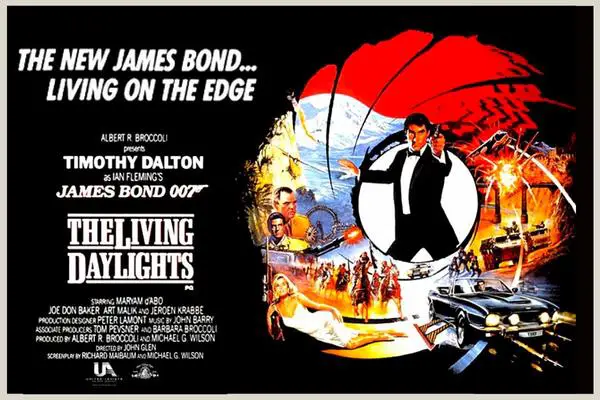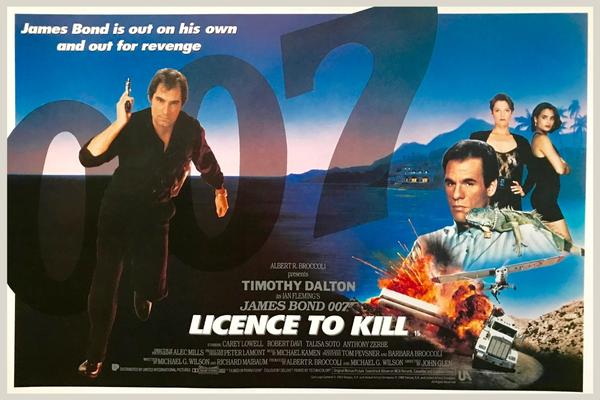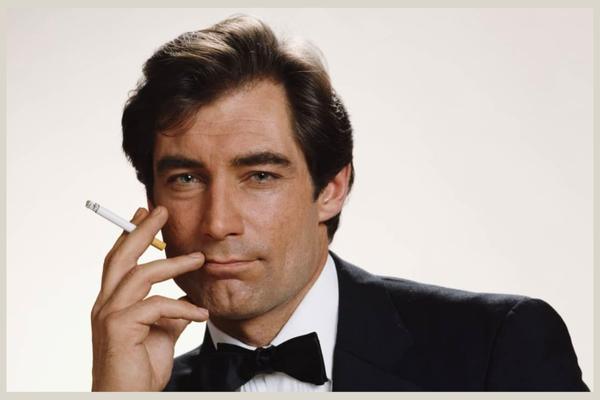Why Weren’t Timothy Dalton’s Bond Films a Raring Success?
Timothy Dalton has become somewhat of a forgotten man in the Bond-sphere, especially to non-Bond aficionados. He was a phenomenal James Bond, but his movies were never as successful as the production team had hoped for.
When the 41-year-old Timothy Dalton took over the aging 57 year old Roger Moore in The Living Daylights it felt like a rebirth of sorts, especially after the last couple of Roger Moore’s Bond films.
Roger had been criticised throughout his tenure, but never more so towards the end of his reign. They had become a bit of a parody and his films were almost too comical. So when Dalton added an intensity to the role it moved closer the Bond of the Ian Fleming novels and Albert R. Broccoli was keen to go down that track.
Timothy Dalton duly signed a seven-year/three-movie contract, and there was a lot of optimism about a fresh start and going back to the roots of a darker James Bond.
Timothy Dalton Brought New Energy to 007 but the Public Couldn’t Accept Him
Timothy Dalton’s first outing as Bond in The Living Daylights (1987) was a fantastic film and refreshing change after the staleness and parody of A View to a Kill in 1985. It was a relative success at the Box Office, too.

Dalton brought back an element to the James Bond character that had been absent from Roger Moore’s portrayal. The Living Daylights set up a tangible reality for the franchise, occurring near the end of Cold War times.
During the movie’s climax, Dalton’s 007 joins forces with Mujahideen in Afghanistan to bust through a Soviet design, mirroring actual global events at the time. The plot was built around Bond’s relationship with cellist Kara Milovy, who was more independent, argumentative and not such a damsel in distress as most earlier Bond girls. There are some great gadgets such as the lasers that splice the cop car from its wheels, but nothing out of the ordinary.
License to Kill (1989) pushed the limit, going even darker. Bond relied less on gadgets from the Q Branch, and is suspended from MI6 after taking matters into his own hands after the death and implied sexual assault of his old friend Felix Leiter’s wife. He also defeats villain Franz Sanchez in a gruesome fashion – using only a cigarette lighter to set him ablaze.
License to Kill flopped at the Box Office with a gross of $156m, making it the least successful Bond movie ever. There has been a lot said about the reasons why it failed, such as releasing it during the blockbuster summer season, and maintaining the British spelling for ‘Licence’ for American audiences.
Some have said, the audiences weren’t prepared for Dalton’s darker and grittier portrayal of 007. Maybe he was a bit before his time, because Daniel Craig’s Bond took on a similar role and audiences really took to him.

Timothy Dalton was contracted to star in a third Bond film, but Property of a Lady never saw the day of light. This was down to ongoing legal wranglings between Eon Productions and MGM, which stalled filming for 2 years. By the time, production was ready to begin, Dalton’s contract was ready to expire, and so the fourth James Bond decided to hang up his tuxedo.
Timothy Dalton – A 21st Century Bond Before His Time
Timothy Dalton is somewhat of a forgotten James Bond, especially to the casual watcher. His 2 films offer a completely different Bond to what we had with Roger Moore and what we got after with Pierce Brosnan.
During his tenure, it became clear that audiences were used to the comedic nature of the Roger Moore films, and failed to be charmed by Dalton’s portrayal of a more serious Bond.
Ironically, Pierce Brosnan was the man the producers wanted before Dalton, but for a busy schedule he would have been Bond, and his portrayal of Bond was more akin to what the public wanted at the time.
Despite the lack of success in staying true to the franchise, both Dalton films are captivating and the gritty edge based in realism set the tone for Daniel Craig’s success as Bond some 20 years later.
The Timothy Dalton Bond films are much better than given credit for, despite underwhelming box office performance. He was different, but recent critics are mostly positive and after rewatching them, it’s clear why.





